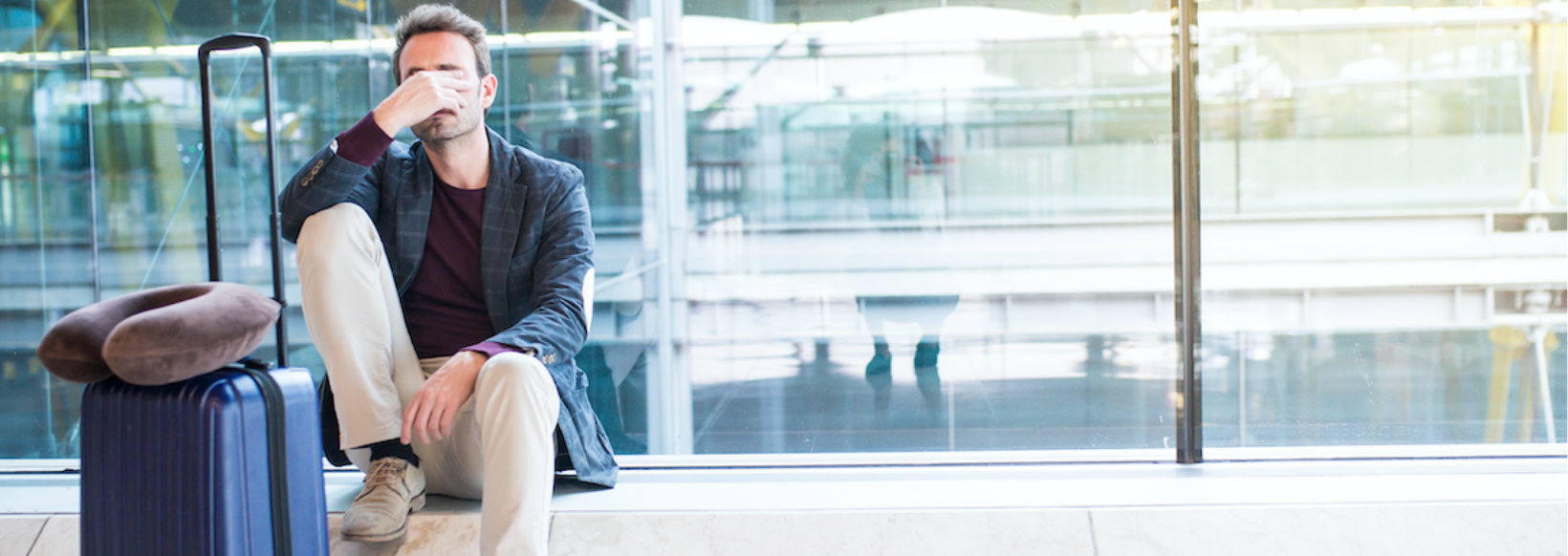
How to best tackle jet lag - travel like a pro
29/04/2019
Jet lag is a relatively recent ailment for humans to suffer. It is one of many conditions that has its origins in rapid technological advancement. Transcontinental travel via jet planes brought with them a touch of glamour and thrill of exploring the globe as well as a particularly annoying and pervasive fatigue.
Jet lag can cause a whole host of undesirable effects including fatigue, apathy, insomnia, loss of appetite and bowel irregularities. So, what can be done about it?
Your body can adapt to a new time zone by about one hour for every day you have been in a new time zone. Unfortunately, there is no ‘cure’ for jet lag. In conquering jet lag, the aim is to speed the process up enough for your body clock to keep up with a jet engine.
Start as you mean to go on
One on the most effective ways to combat jet lag is, in the days prior to travel, adjust your sleeping and waking schedule incrementally towards that of the new time zone. It is notable that physically fit individuals tend to have a less hard time adjusting to jet lag.
Travel Like a Pro
During the flight several factors will help reduce jet lag. Continue to adjust you sleep schedule such that you plan wake up on the plane at least 12 hours before your intended bed time. Blue blocking glasses have been shown to effectively reduce the effects of bright light on melatonin. The ‘Vampire Hormone,’ melatonin is the hormone in our bodies that helps regulate timing of sleep. As its nickname suggests, it goes away in the light, hence the use of the blue blocking glasses to help optimise levels.
To aid sleep, wear loose fitting and comfortable clothing minimise the use of electronic devices, use an eye mask, neck pillow and noise cancelling headphones. Avoid caffeine and alcohol, which can prevent deep sleep.
When you wake up on the flight, firstly do some gentle exercise such as walking and stretching and then watch a film, the blue light from the screen with stimulate the brain into thinking it’s daylight.
Fit in with the locals
When it comes to jet leg “West is best.” When you travel Westbound you are asking your body to stay awake for a few hours more than usual. Far easier than asking it to sleep a few hours early. Also, the natural circadian rhythm of the human body is actually slightly longer than 24 hours making it easier to stay awake.
When travelling Eastbound, get lots of daylight exposure, even if it is cloudy. Get your shades on in the afternoon and then surround yourself with darkness in the evening and at night. Exercise in the early evening to help bring sleep earlier is also a good way to lull your body into thinking it’s bed time.
For Westbound travel, help your body stay awake by getting lots of sunlight without shades on in the afternoon. Exercise in the morning to promote alertness and delay sleep.
Food is a very powerful trigger for resetting your time zone. So, eat at the regular mealtimes of locals in your new time zone.
Have a good strategy for napping. This can be very successful in overcoming daytime fatigue in the new time zone. Keep naps to less than 30 minutes. That way you will not wake up feeling fatigued. Have a coffee immediately prior to a nap so that the caffeine can be working its way into your system while you sleep. Immediately after the nap wash your face and get some sunlight exposure.
Bon Voyage!
Dr Hugh Coyne
Coyne Medical